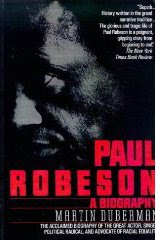 Do our votes really count? I wonder how real elections really are. I read the following information in a book recently:
Do our votes really count? I wonder how real elections really are. I read the following information in a book recently:
“On election night, when the three major television networks announce the next president, the winner they announce is not chosen by the voters of the United States. He is the selection of the three networks themselves, through a company they own jointly with Associated Press and United Press International.
The company is called News Election Service (NES)…News Election Service provides ‘unofficial’ vote tallies to its five owners in all presidential, congressional, and gubernatorial elections. NES is the only source Americans have to find out how they, as a people, voted. Country and city election supervisors don’t come out with the official totals until weeks later. Those results are rarely reported in the national media.
The U.S. government does not tabulate a single vote. The government has granted NES a legal monopoly, exempt from antitrust laws, to count the votes privately.
Those are the facts.
Even an average citizen should be a bit unsettled by the prospect of a single consortium providing all the data used by competing new organizations to discern winners and losers in national elections…
One rationale behind maintaining a vote-counting monopoly is to insure ‘accuracy,’ but in 1968, when Richard Nixon defeated Hubert Humphrey by a margin that could be measured in angstroms, the role of NES became a good deal more shadowy.
At one point in the tally, the NES computer began spewing began spewing out totals that were at the time described as ‘erroneous.’ They included comedian/candidate Dick Gregory receiving one million votes when, the New York Times said, ‘His total was actually 18,000.’ The mistakes were described as something that ‘can happen to anyone.’
NES turned off its ‘erroneous’ computer and switched on a backup system, which ran much slower. After much waiting, the new machine put Nixon ahead by roughly forty thousand votes, with just six percent of the votes left to be counted. Suddenly, independent new reporters found over fifty-three thousand Humphrey votes cast by a Democratic splinter party in Alabama. When the votes were added to Humphrey’s total, they put him in the lead. Undaunted the Associated Press concluded its own state-by-state survey of ‘the best available sources of election data’ (presumably, NES also makes use of the ‘best available sources’) and found Nixon winning again. And that’s how it turned out.
What exactly was going on inside the ‘master computer’ at NES? The company’s director blamed software, even though the machine had run a twelve-hour test flawlessly just the day before using the same programming. Could the software have been altered? Substituted? Or was the fiasco caused by a routine ‘bug,’ which just happened to appear at the most inconvenient possible time? At this point, it’s more a question of what we can know than what we do know.” -From, “Conspiracies, Cover-Ups, and Crimes” By: Jonathan Vankin
 Ingenious, practical, and innovative; Izhar Gafni has created a bike made entirely out of recycled materials. The main recycled material used in this bike, which costs approximately $9 to $12 to manufacture, is cardboard.
Ingenious, practical, and innovative; Izhar Gafni has created a bike made entirely out of recycled materials. The main recycled material used in this bike, which costs approximately $9 to $12 to manufacture, is cardboard. 





